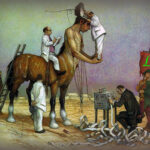September 8, 2016 – When the Bill and Melinda Gates Foundation announced it was increasing its financial contribution to Target Malaria, a project focused on mosquito-killing technology, the methodology being funded has far broader implications. The total investment has grown from $35 to $75 million U.S. The money will be used to alter the DNA of malaria-spreading mosquitoes to push them to extinction.
The project is based at Imperial College in London. The technology, called gene drive, uses tools such as CRISPR/Cas9 to alter genetic instructions in a species to produce traits not beneficial to its survival. In the case of mosquitoes the goal is to create a population incapable of reproduction either through making females sterile, or having them only produce male offspring. Gene drive technology could also create mosquitoes incapable of transmitting malaria and other diseases.
The controversy surrounding gene drive technology goes back to a fear of genetically engineering any life form, even mosquitoes. GMOs or genetically modified organisms have raised the ire of campaigners who consider altering genetic information by inserting new genes into a species DNA as dangerous. In some cases I’m sure the resistance to GMO is about humans playing God but doesn’t consider that we have been altering the genetics of plants and animals since the start of the Agricultural Revolution almost 12,000 years ago.
Gene drive technology isn’t just about saving human lives. There are many more species at risk where the technology can turn back disease and unwanted intrusions by exotic species almost all introduced by humans to isolated communities on islands. For example in Hawaii where human-introduced mice and rats have endangered unique-to-the-archipelago, birds and lizards, Hawaiian researchers are looking at gene drive technology to create only male offspring mice and rats. They are also looking at using gene drive to eliminate mosquitoes, also not native to Hawaii, which have been responsible for spreading avian malaria to native bird species.
The use of gene drive technology remains an issue for we as a species who have yet to determine rules of governance through legislation and policy. Of particular importance is its use on our own species. What if we used gene drive to alter us? This is the stuff of Star Trek’s television episode called “Space Seed” and the subsequent movie “The Wrath of Khan.” In this case we would not be attempting to eliminate an entire species but rather enhance it. But in doing this we would unleash consequences, both good and bad. At its best gene drive could tackle the mosquito, the most dangerous animal on our planet. But at its worst we could open a Pandora’s Box.
When Monsanto, Bayer, Dupont and others created the first genetically modified crops, the goal was to increase agricultural yields and earn a profit for the respective companies and the farmers planting their seeds. But now with gene drive we are moving into a whole new realm of genetic modification. So how do we regulate it? Today nations and sub-jurisdictions sway back and forth between approving GMOs or banning them. Fear and a lack of scientific understanding have accompanied debates in legislatures around the globe. But now it appears to be the right time to bring together scientists and ethicists to create guidance for the regulation of the technology.
One rule will not fit all. Whereas gene drive to wipe out a disease spreading mosquito can be regulated by specific controls on pilot programs, limited releases, follow up studies and more, gene drive regulation applied to many other species may be more rigorous or relaxed depending on the circumstances. What shouldn’t happen is an overall ban. This technology is an instrument for good when the Bill and Melinda Gates Foundation fund specific research to fight mosquitoes responsible for millions of human deaths annually.
















